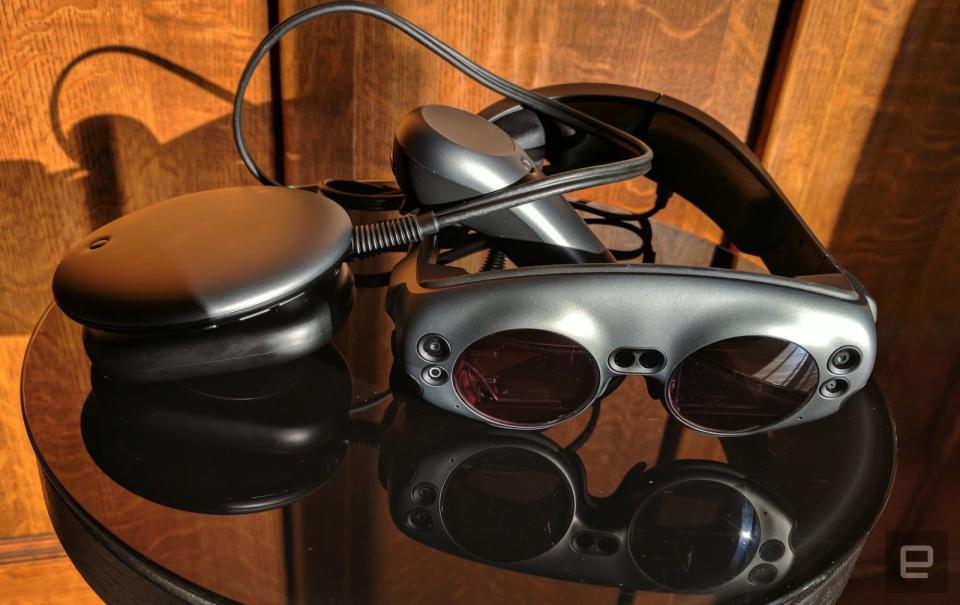Magic Leap is reportedly trying to find a buyer
The company is counting on its Magic Leap 2 AR headset to boost weak sales.
Following poor sales with its first augmented reality (AR) headset, Magic Leap is seeking a buyer for at least part of its business, according to Bloomberg. The company has reportedly already spoken with Facebook and Johnson & Johnson and insiders said it could fetch up to $10 billion in a sale. It would also consider a strategic partnership or other deal ahead of a potential listing.
Facebook took a meeting with Magic Leap but reportedly isn't interested in buying it right now, as the social network is still trying to make its Oculus investment work. Johnson & Johnson declined to comment. The company's other investors include NTT Docomo, AT&T and investment funds in Saudi Arabia and Singapore.
Led by CEO Rony Abovitz, Magic Leap is one of the better financed startups out there, with investors including Google and Alibaba Group. The company has raised around $2.6 billion to develop its augmented reality headset and is valued at up to $8 billion. (The company recently accused rival Nreal of stealing its trade secrets.)
However, the rich investment has yet to translate into commercial success. After years of secrecy-shrouded development and flashy demos, the company released its $2,300 Creator Edition AR headset in 2018. Unlike VR headsets from Oculus or Vive, it has a see-through display that allows virtual objects to interact with the real world. It did have some cool features and showed some potential, but was far from living up to the jaw-dropping FPS/real-world gaming demos it showed earlier.
The company then shifted its focus to business (as Microsoft did with Hololens) with the release of the $2,995 Enterprise Suite that included tools, support, AR-friendly apps and an updated Magic Leap 1 headset. Late last year, after announcing sales of just 6,000 headsets, the company revealed the Magic Leap 2 headset and a new enterprise strategy. Magic Leap's chief product officer Omar Khan said the next headset would be launched next year, but other sources were more pessimistic.


